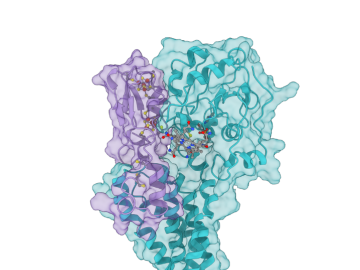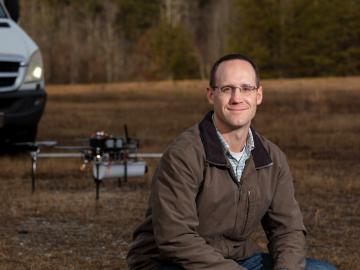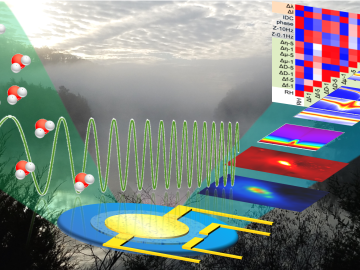
Filter News
Area of Research
News Topics
- (-) Composites (1)
- (-) Computer Science (39)
- (-) Nanotechnology (17)
- (-) Transportation (15)
- 3-D Printing/Advanced Manufacturing (28)
- Advanced Reactors (14)
- Artificial Intelligence (8)
- Big Data (11)
- Bioenergy (13)
- Biology (5)
- Biomedical (22)
- Biotechnology (2)
- Buildings (1)
- Chemical Sciences (5)
- Clean Water (2)
- Coronavirus (25)
- Critical Materials (2)
- Cybersecurity (4)
- Energy Storage (21)
- Environment (29)
- Exascale Computing (3)
- Frontier (1)
- Fusion (13)
- Grid (7)
- High-Performance Computing (3)
- Isotopes (8)
- Machine Learning (8)
- Materials (2)
- Materials Science (37)
- Mathematics (2)
- Mercury (1)
- Microscopy (8)
- Molten Salt (2)
- National Security (2)
- Neutron Science (35)
- Nuclear Energy (31)
- Physics (13)
- Polymers (7)
- Quantum Science (14)
- Security (3)
- Space Exploration (2)
- Summit (17)
Media Contacts

Scientists at Oak Ridge National Laboratory used new techniques to create a composite that increases the electrical current capacity of copper wires, providing a new material that can be scaled for use in ultra-efficient, power-dense electric vehicle traction motors.

Scientists at ORNL and the University of Nebraska have developed an easier way to generate electrons for nanoscale imaging and sensing, providing a useful new tool for material science, bioimaging and fundamental quantum research.

Kübra Yeter-Aydeniz, a postdoctoral researcher, was recently named the Turkish Women in Science group’s “Scientist of the Week.”

The Department of Energy has selected Oak Ridge National Laboratory to lead a collaboration charged with developing quantum technologies that will usher in a new era of innovation.

A team led by ORNL created a computational model of the proteins responsible for the transformation of mercury to toxic methylmercury, marking a step forward in understanding how the reaction occurs and how mercury cycles through the environment.

Horizon31, LLC has exclusively licensed a novel communication system that allows users to reliably operate unmanned vehicles such as drones from anywhere in the world using only an internet connection.

Oak Ridge National Laboratory researchers have developed a machine learning model that could help predict the impact pandemics such as COVID-19 have on fuel demand in the United States.

An all-in-one experimental platform developed at Oak Ridge National Laboratory’s Center for Nanophase Materials Sciences accelerates research on promising materials for future technologies.

Combining expertise in physics, applied math and computing, Oak Ridge National Laboratory scientists are expanding the possibilities for simulating electromagnetic fields that underpin phenomena in materials design and telecommunications.

ORNL researchers have developed an intelligent power electronic inverter platform that can connect locally sited energy resources such as solar panels, energy storage and electric vehicles and smoothly interact with the utility power grid.


